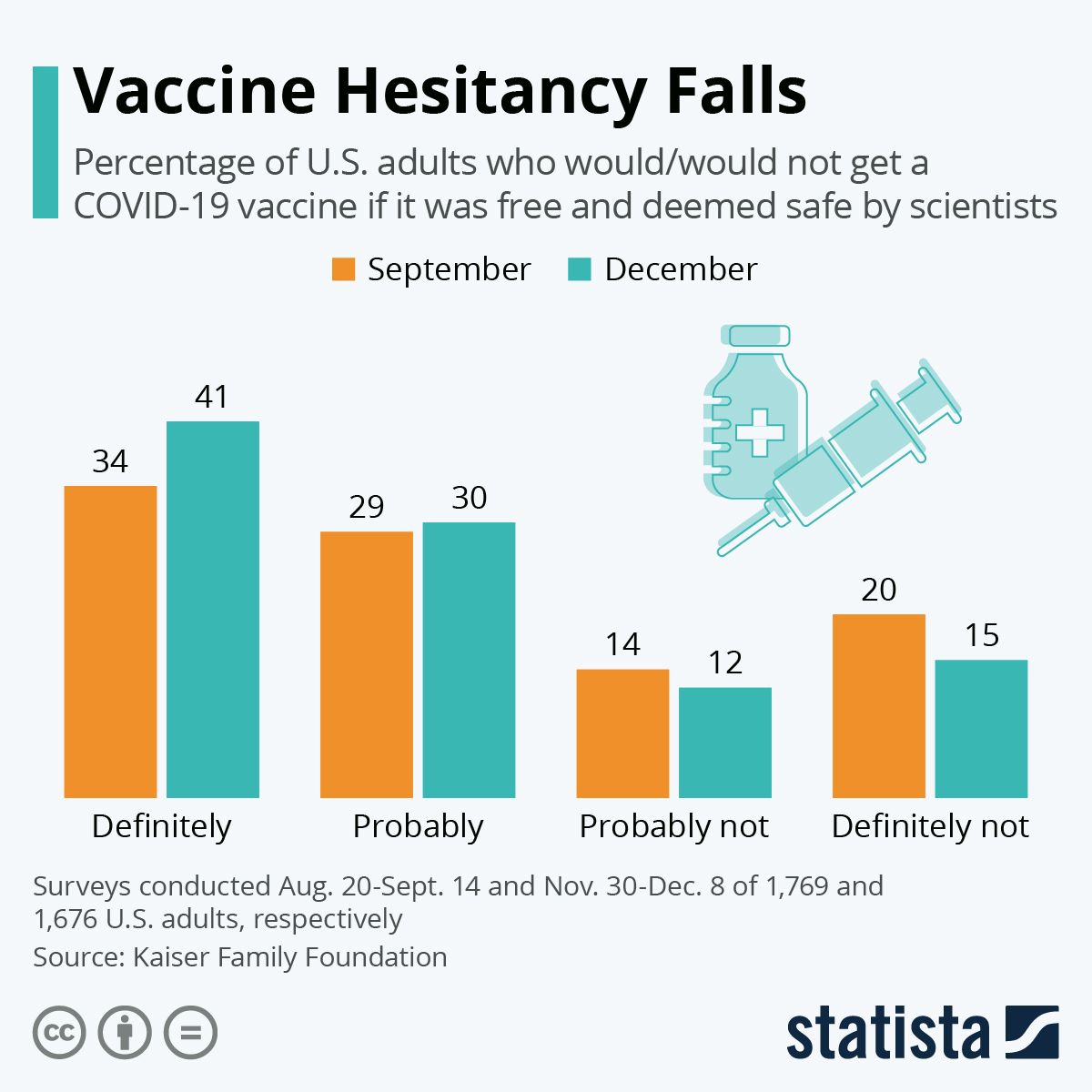The vaccine for COVID-19 is officially being released in the U.S. and across the world after roughly one year since the virus was first introduced into the human population. Its rapid development is one for the history books, and many first responders and more vulnerable people are lining up to be the first in a long line of global recipients. New data shows how a hesitancy to take the coronavirus vaccine has fallen over the past months.
In a new survey from the Kaiser Family Foundation, 71 percent of respondents said they’ll either definitely or probably get the COVID-19 vaccine if it’s free and deemed safe by scientists (which is true for both). That’s an eight percentage point increase from the same survey in September. Just 27 percent said they’ll either definitely or probably not get the vaccine – down seven percentage points from three months ago.
Hesitancy toward the vaccine has been a troubling question mark in the U.S. To achieve an optimal herd immunity for the coronavirus, medical leaders like Dr. Anthony Fauci said this week that roughly 85 percent of Americans need the vaccination. Fauci also recently said he expects to see signs of herd immunity in the country around March, suggesting he’s confident that the U.S. will mostly accept the vaccine over the next months.
Currently, states are prioritizing frontline healthcare workers and extremely vulnerable populations such as nursing homes due to limited vaccine supply. Many states are still developing criteria on how they’ll continue distributing the vaccine into 2021, however the federal Operation Warp Speed vaccine program is hopeful the country will be able to distribute enough doses to vaccinate around 100 million people by March or April.





















